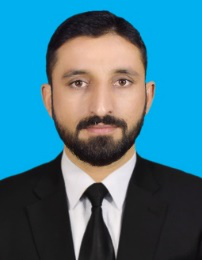October 15-17, 2022
Yan’an University, Yan’an, China
1. Introduction
The second international youth exchange symposium on crops and biology interaction will be held during October 15-17, 2022 at Yan’an University, Yan’an, China. This event will be sponsored by Ecology Team, Yan’an University.
The symposium will focus on various crops and biology interaction techniques and applications in agriculture-based sciences. In the first day, the plenary and invited lectures will be delivered by the world-leading crops and biology experts in the following topics: Crop Management, Crops and Molecular Biology, Crop Stresses. Due to the COVID-19 pandemic, the abroad experts’ lectures will be delivered through the online or digitalization tools.
The aim of the symposium is to promote the advancement of relevant, deepen the exchanges among worldwide relevant experts, and attract more young scholars to join this fascinating field as well.
The Organizing Committee of the conference sincerely invite colleagues in crops and biology interaction to actively participate. Relevant enterprises, universities and research institutes are all warmly welcome.
2. Conference organization
Symposium Chairmen

Wenqiang Wang, he is a famous professor of ecology. He is a key discipline leader of Ecology Province and an expert of “Three Qin Talents” in Shaanxi Province. His research focuses on ecological restoration and environmental protection on the Loess Plateau, locust classification and phylogeny, and regional biodiversity science.
Members of the Organizing Committee
Xiangqian Zhang, College of Life Science, Yan’an University, China.
Sunny Ahmar, Institute of Biological Sciences, University of Talca, Chile.
Yanfeng Wang, College of Life Science, Yan’an University, China.
Sajid Fiaz, Department of Plant Breeding and Genetics, University of Haripur, Pakistan.
Zhantao Bai, College of Life Science, Yan’an University, China.
Adnan Mustafa, Institute of Chemistry and Technology of Environmental Protection, Brno University of Technology, Czech Republic.
Manxing Zhao, College of Life Science, Yan’an University, China.
Secretary of the Organizing Committee
Guoliang Chen, a professor in College of Life Science at the Yan’an University. He is mainly engaged in potato breeding and deep processing, as well as the mining and identification of functional genes of jujube and the development and utilization of active substances.
Xiukang Wang, a professor in College of Life Science at the Yan’an University, he is mainly engaged in field crop planting, water-saving irrigation agriculture, dry land water and fertilizer cultivation theory and technology research.
Speakers
Sabry M. Shaheen
Institute of Foundation Engineering, School of Architecture and Civil Engineering, University of Wuppertal, Wuppertal, Germany.
He is a Global Highly Cited Researcher (Clarivate, list 2021). Currently, Prof. Shaheen is working as “Senior Scientist” at the University of Wuppertal, Germany. He has gained international recognition for his research work in biogeochemistry of toxic elements and published 181 papers in ISI- listed Journals (Impact Factor = 1750; Citations = 11000; h-index = 56; i10-index = 152).
Topic: Remediation of toxic elements contaminated soils using environmentally friendly and low-cost amendments
Kotb Attia
Department of Biochemistry, King Saud University, Saudi Arabia
He a professor of plant genomics at biotechnology center, department of Biochemistry, University of King Saud, Saudi Arabia. His research area is about functional genomics and metabolomics of plants and microorganism genomes. He, as first author, has more than 60 research articles been published.
Topic: Structural and functional characterization of SUMO genes in main food crops
Ayman El Sabagh
Faculty of agricultural sciences, Siirt University, Turkey.
He works on physiological ways to improve stress resistance in crops. His recent research focuses on the ability of plants to resist abiotic stresses to enhance crop resilience to climate change. He has published more than 100 research and review papers in peer-reviewed reputed journals with the citation around 3750 (H Index-27), Scopus h-index 16).
Topic: Enhancing environmental stress tolerance in crop: agronomic and physiological approaches
Umair Ashraf
Department of Botany, University of Education, Lahore (Faisalabad Campus), Pakistan.
He has published more than 125 research articles in peer reviewed SCI journals with more than 400 cumulative impact factor and 4000 citations. He also authored more than 10 book chapters. His area of expertise is plant stress physiology and crop management strategies under stressful environments.
Topic: Hemp (Cannabis sativa L.) as a promising industrial crop; potential applications and utilization in Pakistan
Sajid Fiaz
Department of Plant Breeding and Genetics, the University of Haripur, Pakistan.
He specializes in the evolution and application of genome editing techniques for food and nutrition security. He has published more than 127 research and review articles and 11 book chapters with prestigious scientific magazines.
Topic: Analysis of genomic regions controlling crude protein and fractions of protein in RIL population of Oryza Sativa
Farrukh Azeem
Department of Bioinformatics and Biotechnology, Government College University Faisalabad, Pakistan.
His research area is nutrient transport, abiotic stress response, marker assisted selection, molecular cloning and informatics for the improvement of cereals and legumes. He has published more than 50 research articles.
Topic: An ARR1AT/W-Box cis-element is involved in salt stress response of K+ channel gene AtKC1 in Arabidopsis thaliana
Muhammad Azhar Nadeem
Sivas University of Science and Technology, Turkey
He has documented great skills and expertise in crop science, plant genomics and molecular plant breeding. Dr. Nadeem has been actively engaged in the assessment of genetic diversity, population structure and performing genome-wide association studies for the identification of genomic regions, and their validation through KASP assay for marker-assisted breeding. He has a good number of publications and running a number of projects about the marker-assisted breeding of legumes.
Topic: Genome-wide association study for the identification of genomic regions associated with magnesium-a forgotten element in Turkish common bean germplasm

Shahid Khan
Land Use Research Centre, University of Swabi at University of Swabi, Ireland.
He has deep knowledge of crop production and crop improvement tools and techniques. Bearing academic and professional experience in Pakistan, Saudi Arabia, and Brazil in agricultural production.
Topic: Proteomics and nitrogen use discrimination of popcorn germplasm under different nitrogen levels

Tajamul Hussain
Plant Science, Prince of Songkla University, Thailand.
He is now in the United States Department of Agriculture, Agricultural Research Service, United States. He has excelled in climate change, agriculture and food security, and greenhouse gases in global agriculture. His research focuses on abiotic stress tolerance in plants, agronomy and physiology of crop plants, irrigation systems, and soil water and nutrient dynamics.
Topic: Synchronizing nitrogen fertilization and planting date to improve resource use efficiency, productivity, and profitability of upland rice

Sunny Ahmar
The Institute of Biology, University of Silesia, Poland.
He has extensive research in genome editing techniques, crop stress physiology, agricultural nanotechnology, nano genome editing, and molecular biology. He has expertise in CRISPR/Cas9. Presently, he is working with genome editing and their interactions with plants to develop a speed crop improvement mechanism in one year.
Topic: Development of mutants with varying flowering times by targeted editing of multiple SVP gene copies in Brassica napus L.
Manoj Kumar Solanki
Institute of Biology, Biotechnology and Environmental Protection, University of Silesia in Katowice, Poland.
His current research interest lies in post-harvest disease management, the study of bacterial and fungal microbiomes, nutrient management, plant disease management, bioformulation preparation and application, microbial genome analysis. He has rich experience in plant diseases and has published many book chapters and different research papers in journals of international repute.
Topic: Biocontrol of Rhizoctonia solani root rot in tomato through microbes

Sohaib Chattha
The College of Agriculture, Forestry and Life Sciences at Clemson University, USA.
He devoted himself to the efficient use of cotton nitrogen under the late sowing system. He studied agronomic, morphological, and physiological aspects of cotton in response to N and plant population.
Topic: Enhancement of nitrogen use efficiency through agronomic and molecular based approached in cotton
Adnan Mustafa
Institute of Chemistry and Technology of Environmental Protection, Faculty Brno University of Technology, Czech Republic.
He is focused on soil organic carbon (SOC) accumulation mechanisms, plant-microbe interactions, biochar production, and utilization for agricultural crop production and environmental remediation. He has published over 50 refereed journal articles and has been working for several renowned academic societies and enjoys early career in research.
Topic: Characterization of soil organic matter using state of the art techniques across land uses.
Qudsia Saeed
Institute of Chemistry and Technology of Environmental Protection, Faculty Brno University of Technology, Czech Republic.
Her research interests focus on the assessment of carbon footprints and mitigation of GHGs emissions in wheat-maize cropping systems under long-term fertilization. She has also published several SCI papers in reputed international journals.
Topic: Analysis of the carbon footprints in irrigated and rainfed wheat-maize cropping systems in China
Xiukang Wang
College of Life Science, Yan’an University, China.
He is a professor and master supervisor of ecology, mainly engaged in field crop planting, water-saving irrigation agriculture, dry land water and fertilizer cultivation theory and technology research.
Topic: Effects of irrigation and fertilization on different potato varieties growth, yield and resources use efficiency in the Northwest China
3. Conference Program
Attend meeting
Join Zoom Meeting
https://us02web.zoom.us/j/81360487923?pwd=dkdxRWxMT0N0ZHNEbDRyZmhSbHA3QT09
Meeting ID: 813 6048 7923
Passcode: 20221016
Report time
October 16, 2022 9:30-12:00, Sunday (Beijing time)
Moderator: Xiukang Wang
Time |
Title |
Speakers |
10:00-10:15 |
Structural and functional characterization of SUMO genes in main food crops |
Kotb Attia |
10:15-10:30 |
Enhancing environmental stress tolerance in crop: agronomic and physiological approaches |
Ayman El Sabagh |
10:30-10:45 |
Hemp (Cannabis sativa L.) as a promising industrial crop, potential applications and utilization in Pakistan |
Umair Ashraf |
10:45-11:00 |
Analysis of genomic regions controlling crude protein and fractions of protein in RIL population of Oryza Sativa |
Sajid Fiaz |
11:00-11:15 |
An ARR1AT/W-Box cis-element is involved in salt stress response of K+ channel gene AtKC1 in Arabidopsis thaliana |
Farrukh Azeem |
11:15-11:30 |
Genome-wide association study for the identification of genomic regions associated with magnesium-a forgotten element in Turkish common bean germplasm |
Muhammad Azhar Nadeem |
11:30-11:45 |
Proteomics and nitrogen use discrimination of popcorn germplasm under different nitrogen levels |
Shahid Khan |
11:45-12:00 |
Synchronizing nitrogen fertilization and planting date to improve resource use efficiency, productivity, and profitability of upland rice |
Tajamul Hussain |
12:00-14:00 |
Break |
14:00-14:15 |
Effects of irrigation and fertilization on different potato varieties growth, yield and resources use efficiency in the Northwest China |
Xiukang Wang |
14:15-14:30 |
Development of mutants with varying flowering times by targeted editing of multiple SVP gene copies in Brassica napus L. |
Sunny Ahmar |
14:30-14:45 |
Biocontrol of Rhizoctonia solani root rot in tomato through microbes |
Manoj Kumar Solanki |
14:45-15:00 |
Enhancement of nitrogen use efficiency through agronomic and molecular based approached in cotton |
Sohaib Chattha |
15:00-15:15 |
Characterization of soil organic matter using state of the art techniques across land uses |
Adnan Mustafa |
15:15-15:30 |
Remediation of toxic elements contaminated soils using environmentally friendly and low-cost amendments |
Sabry M. Shaheen |
15:30-15:45 |
Analysis of the carbon footprints in irrigated and rainfed wheat-maize cropping systems in China |
Qudsia Saeed |
4. Support department
Department of Ecology, Yan’an University
Institute of Ecological Protection and High-Quality Development on the Loess Plateau
Shaanxi Key Laboratory of Chinese Jujube
Shaanxi Engineering and Technological Research Center for Conversation and Utilization of Regional Biological Resources


